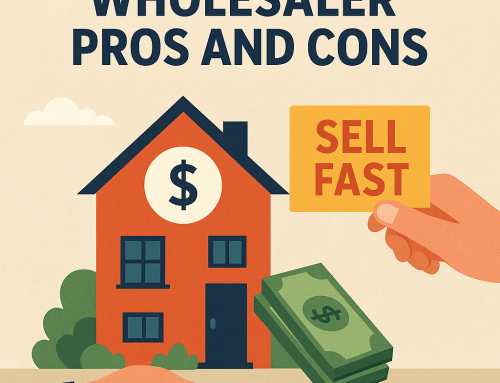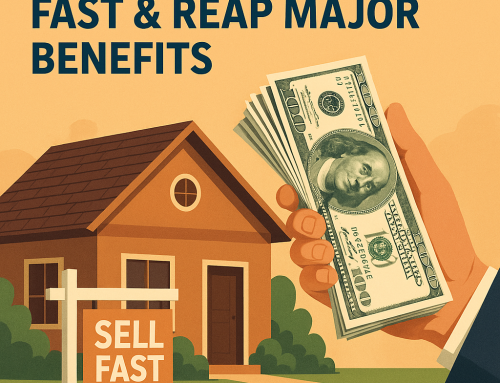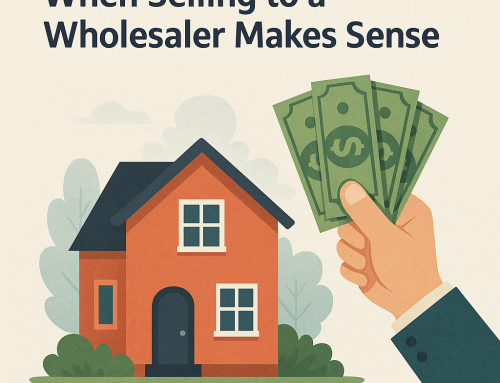- The Appeal of Selling Your Home
- Pros of Selling
- Cons of Selling
- Renting: A Viable Alternative
- Pros of Renting
- Cons of Renting
- Making an Informed Decision
- Conclusion
When it comes to making a decision about your property, homeowners often find themselves at a crossroads: should you sell your home fast or consider renting it out? Each option has its unique set of advantages and disadvantages, especially in a fluctuating real estate market. Understanding these factors can help you make an informed choice that aligns with your financial goals.
The Appeal of Selling Your Home
One of the most significant benefits of selling your home quickly is the immediate cash influx. Opting for a cash-for-home sale can alleviate financial burdens and provide resources for new opportunities, whether that means buying a new property, taking a vacation, or investing in other ventures.
Pros of Selling
1. Immediate Capital: Selling your home allows you to convert your asset into cash, which can be particularly beneficial for addressing immediate financial needs.
2. No Ongoing Responsibilities: Once the sale is finalized, you’re no longer responsible for maintenance, property taxes, or homeowner insurance.
3. Market Fluctuations: By selling your home when the market is favorable, you may secure a higher price, thereby maximizing your investment return.
4. Flexibility: After selling, you’re free to explore new living situations or relocate without the constraints of property ownership.
Cons of Selling
1. Market Vulnerability: Real estate markets can be unpredictable; selling at the wrong time can result in financial loss.
2. Emotional Attachment: Homes often carry sentimental value. Selling can be an emotional process that involves letting go of cherished memories.
3. Closing Costs: Selling a home comes with various fees, including agent commissions, repairs, and closing costs that can eat into your profits.
Renting: A Viable Alternative
Renting your home can provide a steady stream of income and maintain your connection to the property. However, it also comes with its intricacies that need careful consideration.
Pros of Renting
1. Steady Income: Renting generates ongoing revenue that can offset your mortgage payments, offer a return on your investment, and create cash flow.
2. Potential Appreciation: Keeping the property allows you to benefit from potential future appreciation of real estate values in your area.
3. Tax Benefits: In some cases, renting your home may yield tax deductions related to expenses, depreciation, and property taxes.
4. Retain Ownership: If the market improves, you have the option to sell at a higher price later.
Cons of Renting
1. Landlord Responsibilities: As a property owner, you’ll be responsible for repairs, maintenance, and handling tenant issues, which can be time-consuming and costly.
2. Market Risks: If the rental market is weak, you may struggle to find tenants, or you might have to lower your rent, impacting your income.
3. Long-Term Commitment: Renting means you might be locked into a long-term commitment, which can be difficult to manage if your circumstances change.
4. Potential Property Damage: Tenants are not always as careful with the property as an owner would be, leading to potential damage and additional costs.
Making an Informed Decision
The choice between selling and renting ultimately depends on various personal factors, including financial objectives, market conditions, and emotional readiness. If you need to sell home fast due to immediate financial obligations, a cash-for-home option could provide a faster resolution. Conversely, if you’re looking to preserve your investment and can manage the responsibilities of being a landlord, renting might be more suitable.
Conclusion
Both renting and selling have their distinct pros and cons. To make the best decision, evaluate your current financial situation, assess the real estate market, and consider your long-term goals. Whether you choose to sell home fast or rent out your property, ensure that your choice aligns with your lifestyle and financial objectives. Ultimately, the right decision will lead you toward greater stability and fulfillment in your housing journey.




